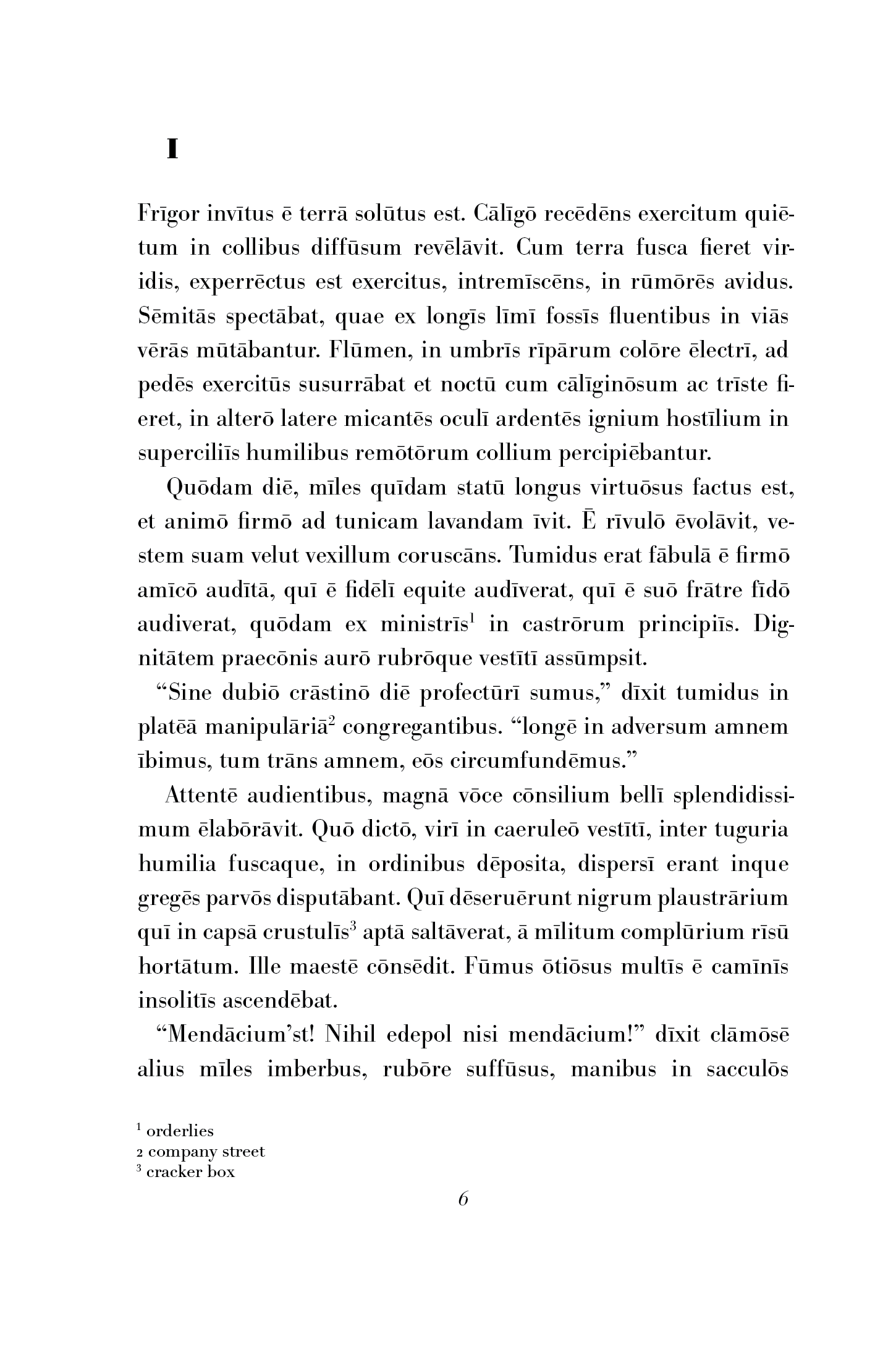The Color of Courage

To purchase a copy of Virtūtis Color, click here.
Stephen Crane's The Red Badge of Courage in Latin
Stephen Crane did not experience the War of Rebellion, but he wrote as if he had. He described what later was termed by some as the first modern war and in so doing his book became part of the canon of anti-war literature. Little did he know that what he wrote was a gruesome herald of what the twentieth century would bring. Like Erich Maria Remarque, who wrote of a young German soldier in the First World War, Crane presented us with a boy ready to do battle for his country and gain honor. ¶ I did not translate the title literally, although the words “badge of courage” occur within the text of the book. Instead I decided to rely on the implications of the word virtus, which the Lewis and Short Latin dictionary defines as “the sum of all the coporeal or mental excellences of man, strength, vigor; bravery, courage…virtue….” I gave this culturally heavy word no specific color, but left that detail up to the reader. Besides, the metrical quality of virtūtis color suggested the epic verse of Virgil. Crane, too, sang of arms and men.

